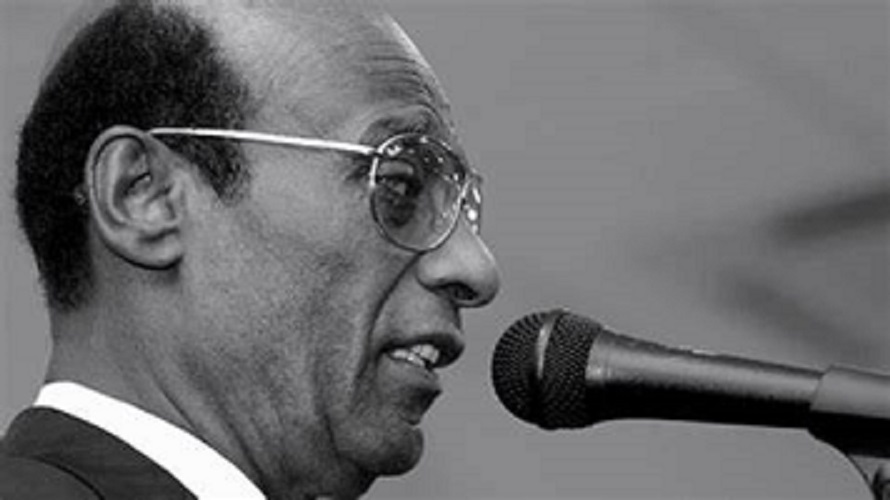Sudanese musician Mohamed al-Amin died Monday morning (November 13th) in Virginia, USA. The late artist is considered one of the most prominent singers on the art scene in Sudan during the past decades.
Sudanese social networking sites are flooded with news of the death of artist Mohammed Al-Amin in the US state of Virginia, at the age of 80. The artist was known for the Sudanese musical community as one of the icons of this art, and one of the creators who contributed to the development of Sudanese music.
Al-Amin presented a large number of melodies of different colors, emotional such as love, circumstances and newspaper, heritage such as Eyal Ab Juwaili, and national such as the October Epic.
Mohammed al-Amin grew up in Wad Madani, Gezira State, and learned to play the flute and oud at the age of 12.
Mohammed Al-Amin’s first appearance was at the end of the sixties of the last century through the song “Ana wa Habibi”, which for many years maintained the top spot in the list of favorite songs in Sudan.
In 1960, Mohammed Al-Amin joined Blue Nile Police Music, led by musician Mohamed Adam Al-Mansouri, where he emerged as a distinctive vocal talent.
He later participated in the radio program “Shapes and Colors” presented by Ahmed Al-Zubair, and presented the song “Deprivation and Hope” by the poet Muhammad Ali Jabara, which was his door to his launch in the world of singing.
Al-Amin was a guest at many music festivals inside and outside Sudan, and gave concerts in Arab and European countries and in the United States of America, the most important of which are the first cultural festival in Algeria, the International Youth Festival in Moscow, and the music art festival in the Netherlands.
As an artist received an honorary doctorate from Al-Neelain University in 2010, and the Presidency of the Republic of Sudan awarded him the Order of Merit on the anniversary of independence in 2014.
The late was honored as one of the most prominent symbols of Sudanese music at the 30th edition of the Arab Music Festival and Conference. He also received several decorations, including the Heroes of Human Rights Medal from the European Union and the Order of Literature and Arts from the Presidency of the Republic of Sudan.
During a television interview, Mohammed al-Amin revealed details about his experience with national singing and his arrest in Kober prison during the government of former Sudanese President Gaafar Nimeiry. He also spoke about the three revolutions he experienced, the October 1964 revolution, the April 1985 revolution and the December revolution.
The artist’s family announced his passing away Monday morning, November 13, at the age of 80, in a Virginia hospital.
Al-Yurae/ (AFP)


